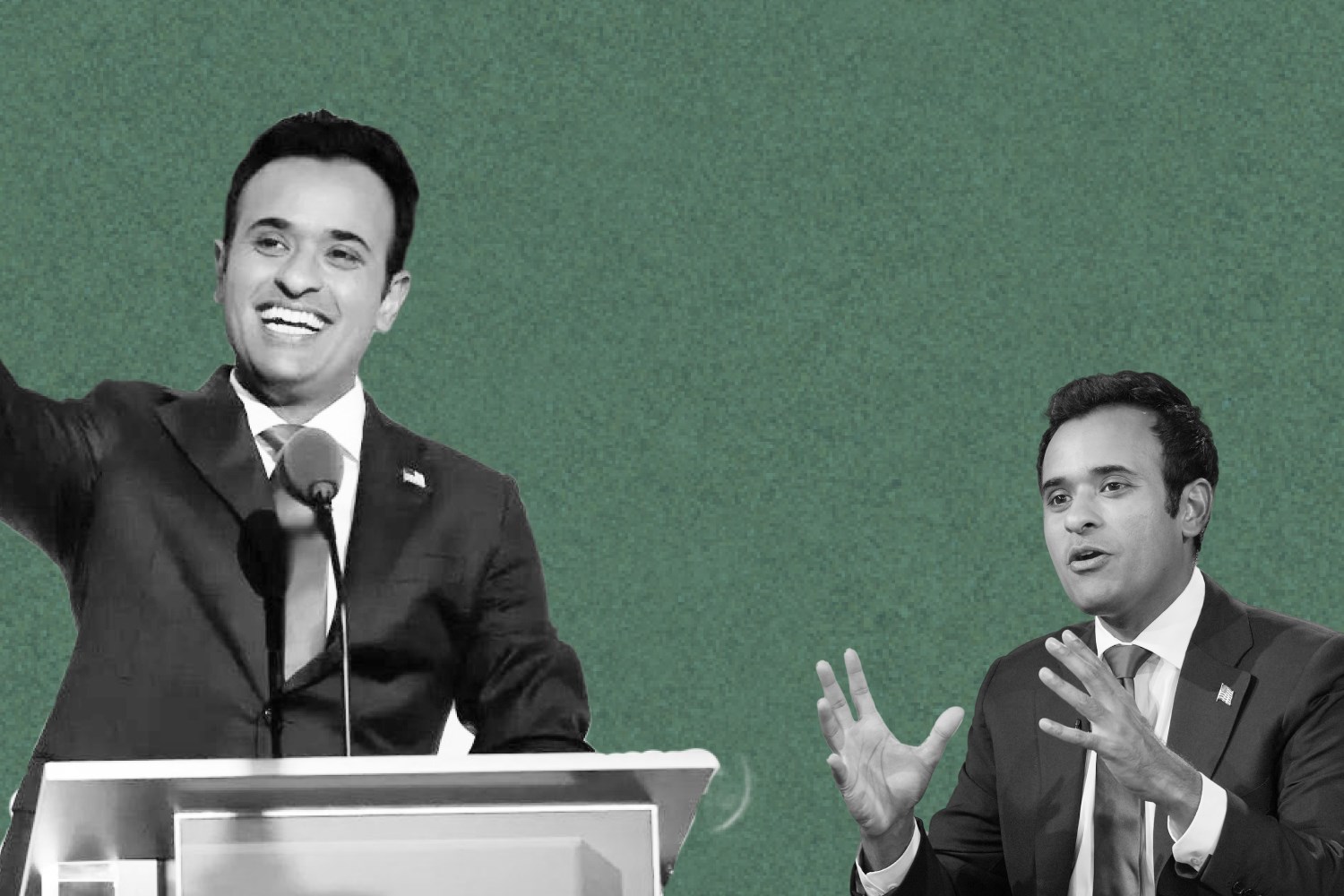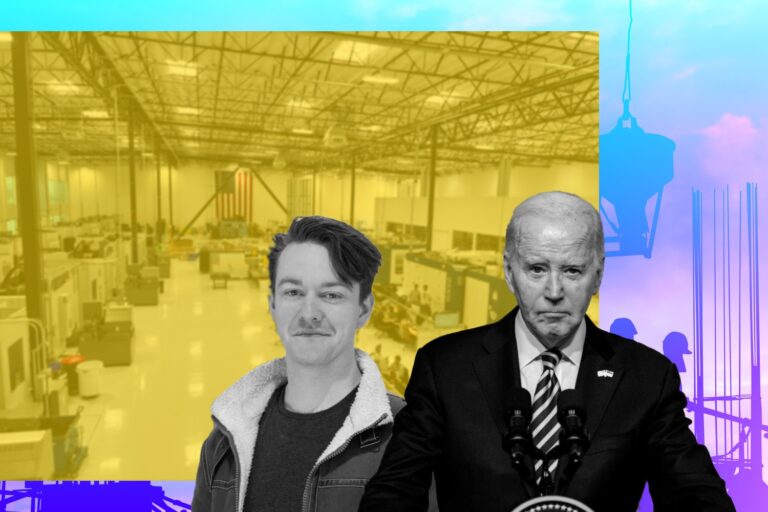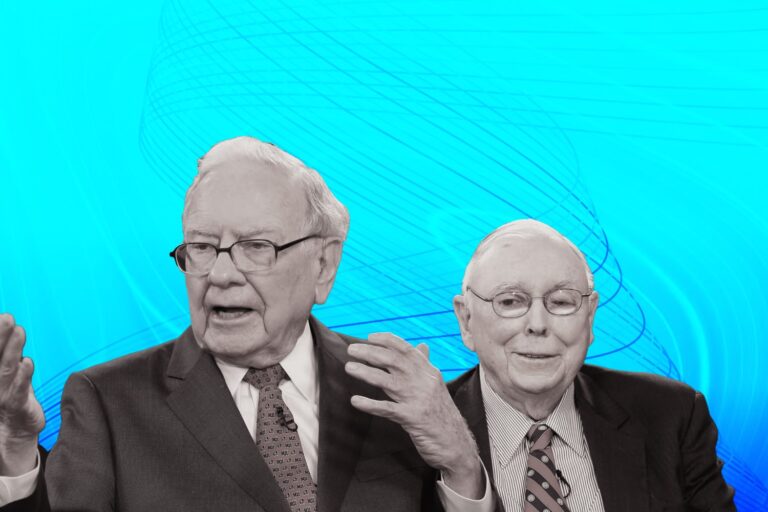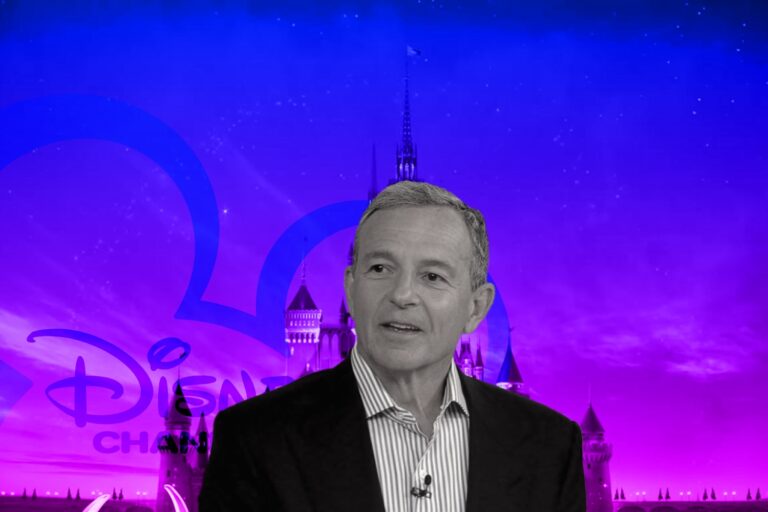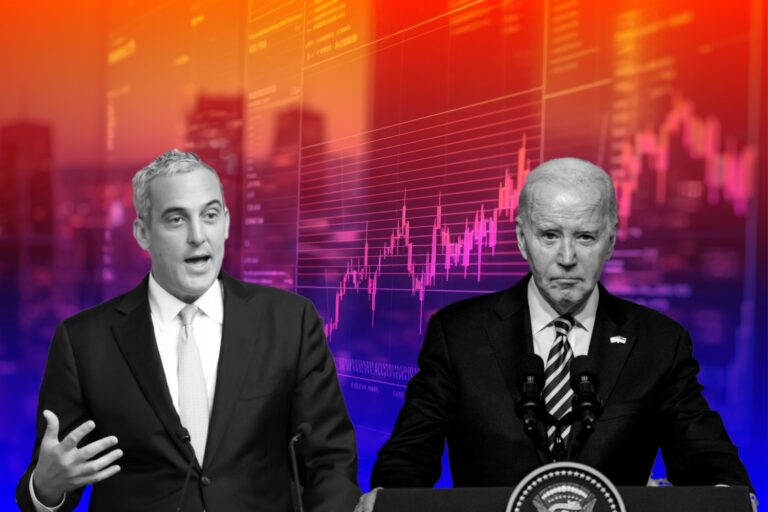Vivek Ramaswamy: From Biopharmaceutical Maverick to Political Firebrand
In the crossroads of scientific inquiry and entrepreneurial zeal, emerges an individual embodying innovation and pushing against the confines of the ordinary. Picture a visionary navigating seamlessly through the intricate terrains of healthcare, business, and philanthropy, leaving an everlasting impact at every bend.
At the heart of this exploration into the life of a modern-day trailblazer lies the story of Vivek Ramaswamy — a name reverberating not solely within the realm of biopharmaceuticals but also woven intricately into the fabric of revolutionary ideas.
From reshaping the very foundation of the pharmaceutical landscape to trailblazing uncharted paths, Ramaswamy’s journey reflects the dynamism of an era driven by disruption and a relentless thirst for reinvention.
The Seeds of a Successful Future Were Sown in Childhood
Born at the intersection of cultures on August 9, 1985, in Cincinnati, Ohio, Ramaswamy’s upbringing laid the foundation for his later achievements.
He comes from an Indian-American family. While his mother’s profession as a geriatric psychiatrist provided him with insights into the healthcare domain, sparking his interest in the complexities of the human body and mind, his father’s dual positions as both an engineer and a patent lawyer at General Electric introduced him to the crossroads of technology and legal aspects.
Frequently, he recalls his father’s counsel: “If you’re going to distinguish yourself, you might as well do so exceptionally.”
Ramaswamy’s academic journey saw him attending St. Xavier High School in Cincinnati, marking the first step in his pursuit of knowledge.
His educational odyssey continued at Harvard University, where he achieved magna cum laude honors upon graduating with a degree in Molecular and Cellular Biology. At Harvard, his involvement in extracurricular activities was diverse.
While majoring in biology, he engaged with the South Asian Association, yet his primary interest shifted towards American politics. With a libertarian mindset, he assumed leadership as the president of the Harvard Political Union. Intriguingly, he embraced an unexpected artistic outlet by performing Eminem covers and composing original rap songs centered around free-market themes, adopting the persona of DaVek.
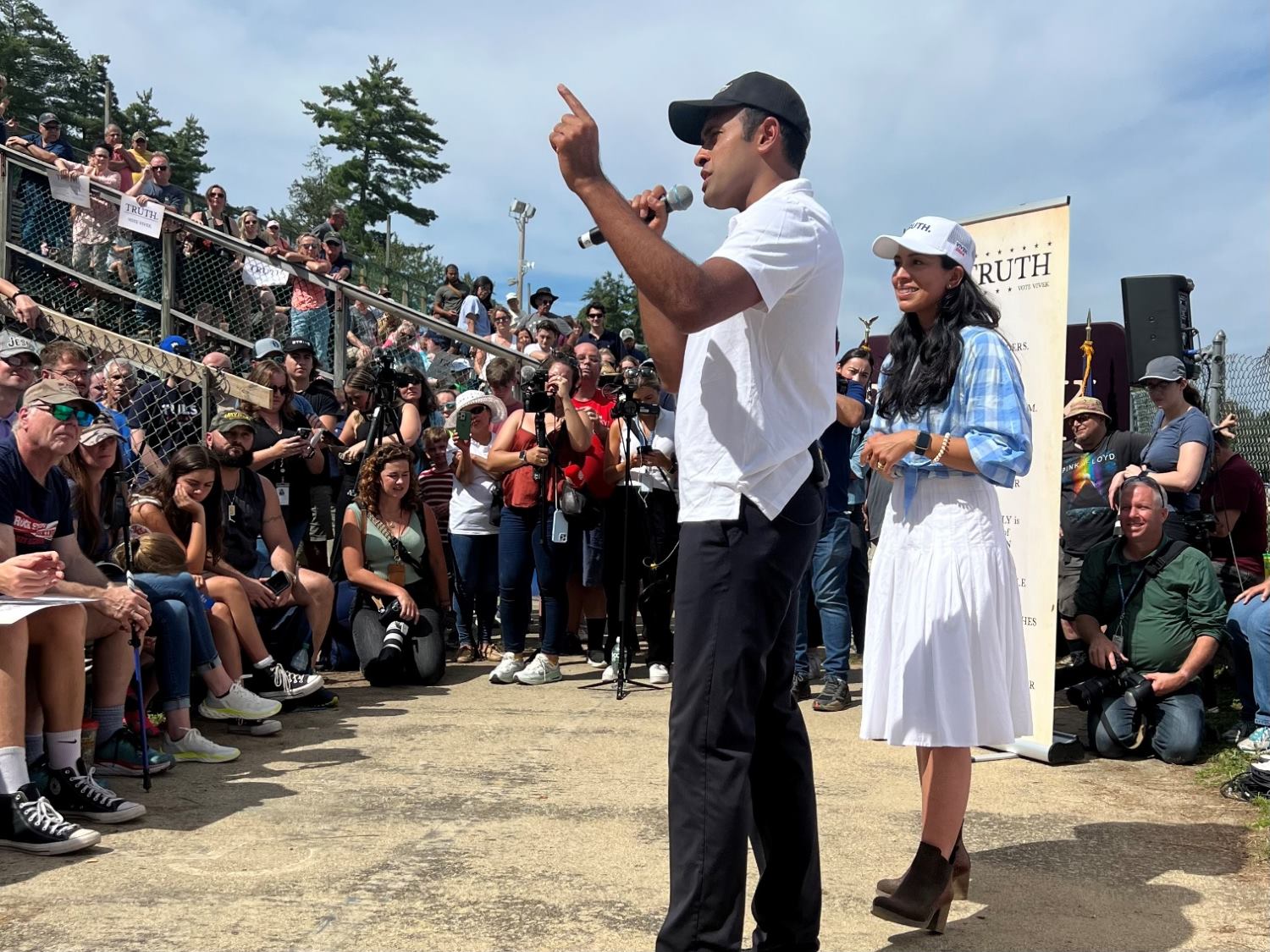
Despite the possibility of his views and style not resonating with everyone, Ramaswamy remained unswayed by potential dissent.
After completing his studies at Harvard, Ramaswamy entered the professional world as a biotech-stock analyst at QVT, a hedge fund located in New York City. This firm was under the leadership of physicists whom he deeply respected for their intellect.
This period allowed him to gain significant knowledge about financial engineering and the evaluation of investment prospects. Nevertheless, after a few years, his longing for fresh and more stimulating experiences began to intensify. However, just as the other entrepreneurs, his road is not just pink and happy.
The Rollercoaster Ride Toward Biotech Dominance
In the year 2010, a pivotal moment arrived as Ramaswamy spent a day attending classes at Yale Law School, a path he had previously deferred. This encounter led him to an enthralling criminal-law lecture taught by Jed Rubenfeld, captivating his intellectual curiosity and steering him towards uncharted academic territories.
By the time he completed his J.D. in 2013, Ramaswamy has mentioned that he had already amassed a multi-million dollar fortune.
In 2014, shortly after completing his education, Ramaswamy took a significant step by founding Roivant Sciences, a biopharmaceutical firm. The distinguishing feature of the company’s strategy was its acquisition and development of late-stage drug candidates from various pharmaceutical companies and academic institutions. The primary aim was to streamline the process of bringing these promising treatments to market.
Roivant Sciences introduced an inventive approach by establishing subsidiary companies, each concentrating on a specific therapeutic field like neurology, women’s health, and oncology. This structural setup facilitated focused and specialized efforts towards advancing drug development, potentially unlocking breakthroughs in various medical domains.
The unconventional business model adopted by the company quickly captured industry attention and gained traction beyond its confines. Roivant secured substantial funding and forged notable partnerships with established pharmaceutical players, effectively propelling its mission to reshape healthcare by advancing cutting-edge drug solutions.
The company established several affiliated companies, such as Dermavant (concentrating on dermatology), Urovant (centered on urological conditions), and Sinovant and Cytovant based in China, with a focus on the Asian market.
In 2015, Ramaswamy gathered $360 million to support Axovant Sciences, a subsidiary of Roivant, aiming to promote intepirdine as an Alzheimer’s disease treatment. The drug had previously failed in four clinical trials under GlaxoSmithKline, which then sold its intepirdine patent to Axovant for $5 million. Ramaswamy gained attention, appearing on Forbes’ cover, and expressed ambitious expectations for the company’s success.
He orchestrated an initial public offering (IPO) for Axovant before commencing new clinical trials. Despite having only a few employees, including his family members, Axovant’s IPO raised $315 million, initially boosting its market value to nearly $3 billion. Ramaswamy profited substantially by selling a portion of his Roivant shares.
However, in September 2017, Axovant declared the failure of intepirdine in a major clinical trial. The company’s worth plummeted by 75% in a single day, causing ongoing declines and affecting institutional investors like the California State Teachers’ Retirement System.
Ramaswamy was shielded from much of Axovant’s losses due to his stake being held through Roivant. The company abandoned intepirdine and attempted to transition into a gene therapy enterprise.
In 2017, Ramaswamy secured a deal with Masayoshi Son, leading to a $1.1 billion investment in Roivant from SoftBank. In 2019, Roivant sold its interests in five subsidiaries, including Enzyvant, to Sumitomo Dainippon Pharma. Ramaswamy gained $175 million in capital gains from this transaction, which also granted Sumitomo Dainippon a 10% stake in Roivant.
Then arrived the year 2020. After an entire preceding year where he found himself increasingly perturbed by corporate advocacy for ESG (environmental, social, and governance) investing, Ramaswamy took the initiative to compose an op-ed piece for the Wall Street Journal.

This article put forth the viewpoint that business leaders should not be engaged in shaping America’s societal and cultural values. The outbreak of the pandemic and the subsequent racial justice demonstrations during that summer only solidified his stance.
This sentiment stemmed from his frustration with his board of directors urging him to take positions on contentious matters linked to COVID policies and the aftermath of George Floyd’s death.
In 2021, Ramaswamy stepped down from his role as CEO of Roivant and authored a book titled “Woke, Inc.,” which achieved the distinction of being a New York Times bestseller. In short order, he became a regular presence on Fox News.
Swiftly following, he penned another book, this one critiquing mentalities centered on victimhood and the phenomenon of identity politics. As his appearances on numerous cable news channels multiplied, he received invitations to consider running for Senate in Ohio, a prospect he acknowledged considering.
“Strive”: A Paradigm Shift in Investment Philosophy and Political Thought
In 2022, Ramaswamy established Strive Asset Management, an investment firm that positioned itself in direct contrast to the prevalent environmental, social, and governance (ESG) framework employed by certain companies to guide their investment choices.
This move occurred within a larger context of resistance against “ESG” principles from conservative circles. With backing from notable billionaires such as Peter Thiel and Bill Ackman, Strive Asset Management reported managing over $230 million in assets within just two weeks of trading in August 2023, although the specific details of Ramaswamy’s compensation remain undisclosed.
The inception of Strive also marks a pivotal moment in Ramaswamy’s journey. Co-founded with Frericks, Strive emerged as an asset-management company with a distinct mission: to redirect focus towards shareholder value while sidestepping the prevalent political currents infiltrating corporate decisions.
Established against the backdrop of increasing advocacy for ESG (environmental, social, and governance) investing, Strive deviates from the mainstream by steering clear of conforming to these trending paradigms. Ramaswamy’s conviction that businesses should unapologetically prioritize their core mission of building shareholder value drove the company’s foundation.
Strive’s launch introduced a series of exchange-traded funds (ETFs) into the market, accompanied by an unconventional philosophy. These ETFs, along with those in the pipeline, buck the trend of ESG and sustainable investing, reflecting a deliberate move to prioritize financial returns over ideological alignment.
According to Frericks: “We ask companies to focus unapologetically on the mission of building shareholder value,” Frericks said. “We want to depoliticize corporate America.”
Recently, he has been facing legal challenges from two former employees who allege serious misconduct within the company. Joyce Rosely, who filed a lawsuit in August, claims she was terminated from her role as co-head of institutional sales after raising concerns about an executive’s inappropriate behavior towards a lower-level staff member and violations of securities laws.
Rosely further alleges that Ramaswamy and co-founder Anson Frericks pressured her into using sales materials that promised future returns to customers and allowed unregistered employees to make sales pitches, both of which constitute securities violations. She also raised concerns about Ramaswamy’s social media posts, which she believed were in violation of securities regulations.
In a separate lawsuit filed in June, John Phillips accused Strive Asset Management of making false promises to lure him away from his previous job at JPMorgan. Phillips claimed that Ramaswamy misrepresented the company’s financial stability to employees and investors. Like Rosely, Phillips asserted that he was pressured to violate securities laws during his tenure at the company.
Both Rosely and Phillips were terminated from their positions in March. Phillips alleges wrongful termination, while Rosely not only claims retaliation for her misconduct complaints but also age discrimination, as she was reportedly told her dismissal was part of a reorganization effort targeting employees over the age of 40.
Besides, upon Vivek Ramaswamy’s recent declaration of his presidential candidacy, during which he positioned himself as a vocal critic of “woke capitalism,” he stepped down from his active role in Strive, the anti-ESG (Environmental, Social, Governance) fund management company that he originally established.
Despite his departure from an active role, Ramaswamy continues to hold a substantial stake in Strive, which operates as a private entity. Recently, he divested $32 million worth of shares from Roivant, the biotech company that propelled him into a position of substantial wealth.
In addition, he relinquished his seat on the board of Roivant. While Ramaswamy has not responded to a request for comment from the media, his lingering influence, and the strategic direction of Strive underscore the enduring impact of his involvement in both the financial and corporate spheres.
It’s not a boast to say that Vivek Ramaswamy made a fortune before pivoting to politics. But just as his appearance as an entrepreneur, when jumping to the political arena, the man counter hundreds of thousands of problems too.
Ramaswamy’s Calculated Political Entry and Ideological Complexities
Ramaswamy’s foray into the political arena as a candidate seeking the 2024 Republican nomination marks a significant chapter in his political journey. Despite his initial status as a political novice, his calculated moves and strategic decisions have positioned him as a noteworthy contender within the Republican Party.

One pivotal moment in Ramaswamy’s campaign was his announcement on Tucker Carlson Tonight, a program renowned for its alignment with right-wing ideologies, anti-immigrant sentiments, and staunch support for former President Donald Trump.
By choosing this platform to declare his candidacy, Ramaswamy capitalized on the show’s dedicated viewership, comprised of individuals who share his political views. This move also underscores the symbiotic relationship between media figures and aspiring politicians, as Ramaswamy leveraged Carlson’s influence to bolster his own political standing.
It’s worth noting that Ramaswamy’s decision to declare his candidacy on Carlson’s show came in the aftermath of the cancellation of Carlson’s regular Fox News program. While the reasons behind the show’s cancellation remain somewhat obscure, Ramaswamy’s association with Carlson raises questions about the strategic partnerships and allegiances that emerging political figures forge to solidify their base of support.
Ramaswamy’s political identity is a mosaic of intriguing contradictions. Despite being an ardent supporter of Donald Trump and even making public appearances in support of the former president during legal proceedings, he is simultaneously attempting to establish himself as a successor who can surpass Trump’s policies on various fronts.
As Ramaswamy’s campaign unfolds, his positioning relative to the broader Republican Party will be closely observed. His attempt to outpace Trump’s policy stances raises intriguing questions about the evolution of Republican ideology.
Will he advocate for an intensified version of Trump’s policies, or will he strive to incorporate more nuanced and expansive solutions to the challenges facing the nation? This duality encapsulates the broader struggle within the Republican Party to define its post-Trump identity.
His proposal to station soldiers at half-mile intervals along the US-Mexico border, rather than solely relying on a wall, reflects a more assertive stance on border security. This approach highlights his desire to enhance border enforcement and control through a physical military presence, which he believes could be more effective in preventing unauthorized immigration and addressing security concerns.
The pledge to abolish the FBI and redistribute its resources to other agencies like the US Marshals Service demonstrates his willingness to challenge established institutions in favor of what he perceives as more efficient alternatives. By focusing on issues such as child sex trafficking, Ramaswamy aims to align law enforcement efforts with his own priorities.
Ramaswamy’s departure from mainstream Western sentiment on Ukraine, by indicating potential support for a deal allowing Russia to retain its occupied territory, showcases his willingness to deviate from conventional foreign policy stances.
The forthcoming “comprehensive foreign policy vision” reveals Ramaswamy’s ambitions to outline his approach to global matters, including relations with Russia, China, Taiwan, India, and other parts of Asia. This signifies his intent to present a holistic and strategic understanding of international affairs, which could appeal to voters looking for a candidate with a comprehensive worldview.
Taking the Wrong Path – Bearing the Intense Fire
However, Ramaswamy’s campaign has also faced controversy, notably for his comments regarding the 9/11 terrorist attacks.
“The truth is there are lies the government has told about 9/11, but it’s not the ones that somebody put in my mouth,” he said during a contentious interview Monday evening with CNN’s Kaitlan Collins.
“I think it is legitimate to say how many police, how many federal agents, were on the planes that hit the Twin Towers,” he said in the Atlantic profile.
He informed the media source Semafor separately that the statement mentioned in The Atlantic article did not exactly reflect his words.
In the mentioned quote, Ramaswamy expressed, “I believe it’s reasonable to ask, ‘Were there any police, any federal agents on the planes that crashed into the Twin Towers?’ Perhaps the answer is zero, which is likely the case, as far as I know. I don’t have any reason to think otherwise. However, if we’re conducting a thorough examination of the 9/11 events, just like we had a 9/11 commission, the public deserves to know if there were any government agents involved.”
The backdrop for this quote was a conversation between Ramaswamy and reporter John Hendrickson, initiated by Ramaswamy’s assertion that the truth about the January 6 Capitol riot hasn’t been disclosed to the public.
In response, Hendrickson asked if Ramaswamy was suggesting that the riot might have involved entrapment. Ramaswamy affirmed this and emphasized the importance of the country understanding if any government agents were present during the riot and contributed to it.
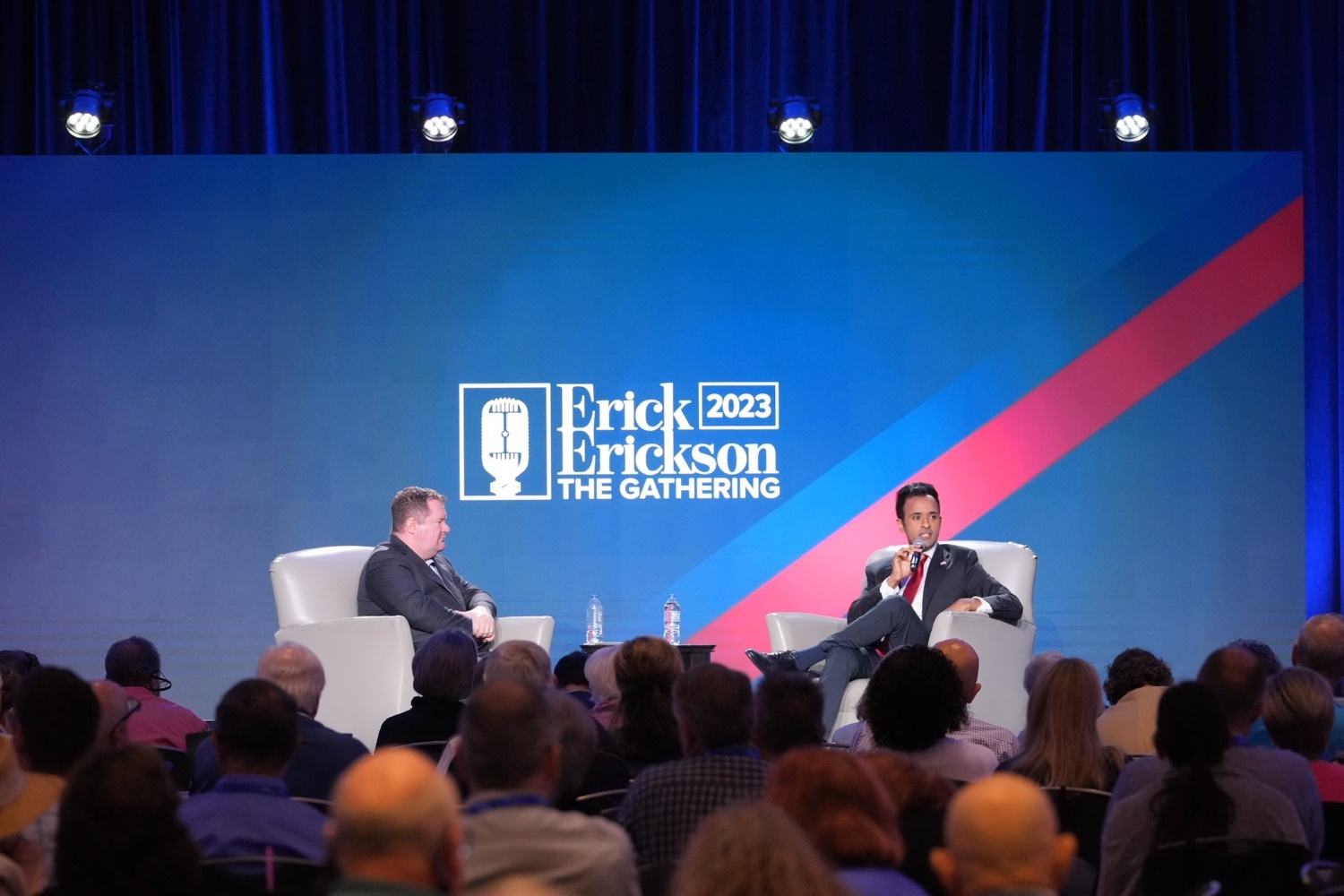
Upon contesting that he was quoted inaccurately, The Atlantic stood by the accuracy of their quote and provided a recording of the interview as evidence.
A spokesperson for Ramaswamy’s campaign communicated that the conversation with Hendrickson was open-ended and did not place blame on Hendrickson. However, they clarified that the focus was on the events of January 6 and not on 9/11.
Ramaswamy informed Collins that he believes a significant number of federal agents were on-site during the January 6 incident, and the public should be aware of their identities. He reiterated that he was misquoted by The Atlantic and also raised concerns about the U.S. government misleading the public regarding Saudi Arabia’s role in 9/11.
The findings from the committee responsible for investigating the 9/11 attacks, known as the 9/11 Commission, stated that there was no evidence linking the Saudi government or its senior leaders to funding al Qaeda. However, wealthy individuals in Saudi Arabia have been considered as potential primary supporters of the terrorist group.

